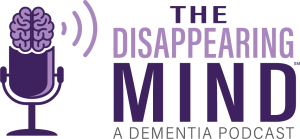One of the major psychiatric symptoms of middle to late-stage Alzheimer’s disease and other dementias include paranoia, hallucinations, and delusions. When an elderly individual is experiencing hallucinations and delusions, it can be common for caregivers to not understand how to respond. Unlike many other situations, a logical approach may not always be the best when caring for dementia patients.
How Dementia Can Cause Hallucinations And Delusions
Dementia and its other forms can cause changes in the brain that may lead the patient to hallucinate, which means they may feel, hear, see, or even taste something that is not there. Even though we understand these are false perceptions, the brain of a person with dementia distorts or misinterprets their senses, making the hallucinations feel extremely convincing to them. Some hallucinations can be scary, but these mostly involve visions of people, objects, or situations from one’s past, and can be pleasant or disturbing.
Dealing With Hallucinations And Delusions in The Elderly
With any episodes of hallucination, it is essential that you validate your elderly loved one’s experience, respond to how they feel, and help make them feel safe. It is never helpful to argue or rationally explain to them why these perceptions or beliefs happened as it would just agitate the individual. They will know when you aren’t taking their feelings and thoughts seriously. While reinforcing reality seems like the reasonable thing to do, here are three ways you can respond when someone is experiencing dementia hallucinations:
- Validate their feelings and provide reassurance – Instead of dismissing their experience by saying something like, “Don’t be silly, there’s nothing there,” you could say, “That sounds terrible, I can see how that would upset you.” It’s most important to be kind and respond to their feelings rather than their hallucinations.
- Assess the environment and remove possible triggers – Often, these hallucinations can be triggered by objects or noise stimulation around your loved one. Reflections and mirrors can be a source of confusion or fear, and the radio may make them believe there are strangers in the house.
- Distract and redirect your older adults from their hallucination – You could sing their favorite song, ask them to help you with a chore that makes them feel accomplished, or take a look at family photos.
If they get severely stressed out by their hallucinations, it is best to contact their doctor immediately for help.
Changing Your Expectations And Communication Methods
Family caregivers can struggle to adapt to these changes happening to their loved ones. Unfortunately, the techniques mentioned to deal with such behaviors in dementia patients are not common knowledge and can get extremely frustrating to cope with. Even once caregivers understand these approaches, trading rational and logical explanations for reassurance and acceptance takes plenty of practice, time, and patience. It is most important to be kind to yourself and to fill your cup when necessary so that you can best care for your loved one.
Why Choose The Park Oak Grove?
Our senior living community boasts top-notch amenities and high-quality programs that are unique to The Park Oak Grove. We also offer residents endless opportunities to maintain a socially and physically active lifestyle according to their preferences.
If you have any inquiries about our range of services, don’t hesitate to contact us today.








